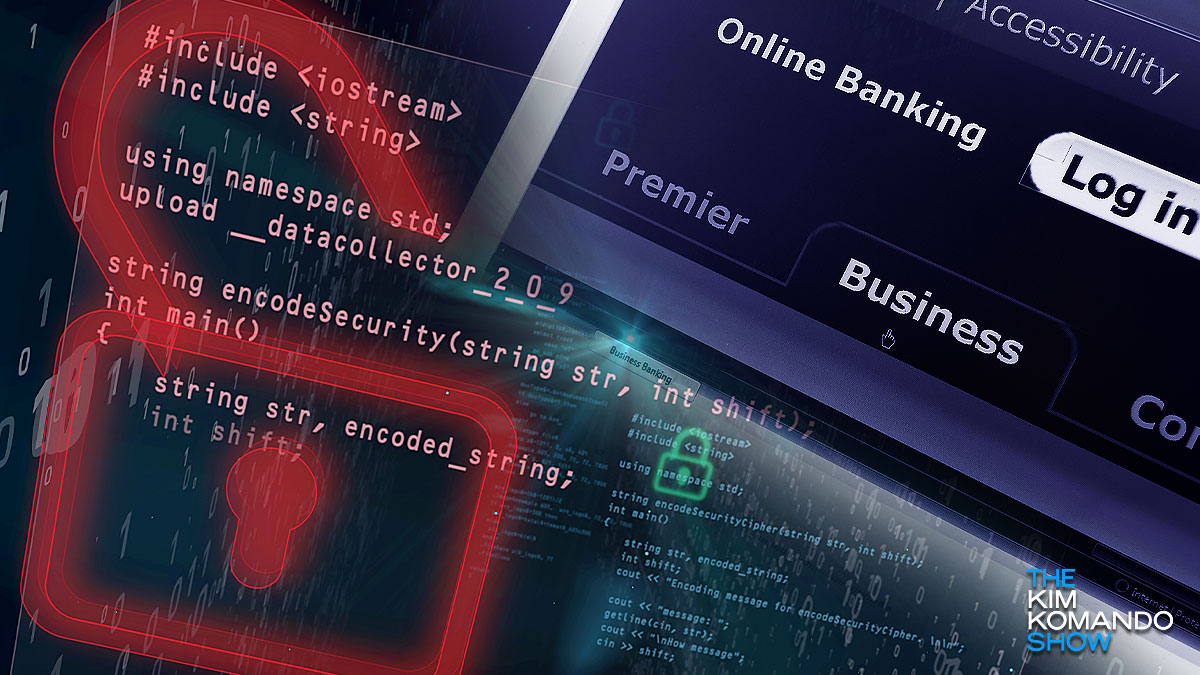Apparently the pharmacy chain Rite Aid just found out about a “little” data breach they had … back in 2017.
How NASA plans to back up data on lunar soil

Let me ask you a question: Do you think the cloud is a safe place to back up your data, the world’s treasures and government secrets? In a world of increasing breaches, hackers and threats, even cloud storage might not be enough.
Welcome to the next frontier: Lunar backups. NASA is teaming up with Lonestar, a Florida-based startup, and the Isle of Man, that self-governing British Crown Dependency you might’ve never heard of, to store data on the moon. Think of it like the ultra-secure Fort Knox but for digital information.
🚀 Blockchain goes intergalactic
How do you keep data safe on the moon? By using a blockchain — the same tech behind crypto. It ensures data is secure, genuine and tamper-proof. This isn’t your mom’s filing cabinet; it’s out of this world.
The first data cube, “Freedom,” landed on the moon in February 2024, proving the concept works. Lonestar’s first commercial mission takes off in 2026. Oh, and the Isle of Man’s post office got in on the fun, too, sending digital stamps to the moon. Now that’s first-class mail.
🌝 Why the moon?
The moon isn’t becoming a storage locker for your embarrassing selfies. The mission is first to preserve humanity’s crown jewels — our most vital data. Think of it as Earth’s external hard drive or a modern Library of Alexandria (hopefully, with a less tragic end).
What’s on the moon-bound list? Obvious candidates include:
- Scientific research: DNA sequencing data, climate models and pandemic studies.
- Cultural archives: Literary classics, historical texts and digitized art collections.
- Financial records: Stock market data, transaction histories and economic models.
- Health care information: Genome mapping and medical research.
- National security data: Sensitive classified information.
- Tech blueprints: Designs for critical infrastructure, from power plants to the internet backbone.
- “The Kim Komando Show”: Audio files of all my shows, because they’re that important to all mankind. (OK, I made that up!)
🌎 Earth vs. the moon
Not everyone’s on board with storing data on the moon. It’s not like you can send a tech to fix things. And retrieving something? Think “break glass in case of emergency,” not your daily backup.
Accessing lunar data would take spacecraft, encryption and dealing with space itself. Long-term storage? Sure. Easy? Not at all.
Small-biz tip: Don't overlook this digital danger

Are you the type of business owner who forgets about ex-employees as soon as they’re gone? Failing to remove former employees’ access to your systems and data could lead to security breaches. Don’t let poor offboarding practices be the weak link in your cybersecurity chain.
Uh, who even goes to Rite Aid?
Bosses are firing Gen Z workers fast
Gen Z grads are getting the axe — 6 in 10 employers have already let them go. Plus, a massive security breach exposed the private info of millions. Find out how one guy spent $1K on Facebook Ads to find love and about a new law that could change your car radio.
AT&T’s $5K oops: Did your call logs hit the dark web? You might get paid for it. AT&T agreed to shell out $177M over two juicy data breaches, one from 2019, the other from 2024. You could snag up to $5K, but you’ve gotta prove actual losses. Notifications begin Aug. 4.
Everything we know about the MoneyGram breach

Another day, another massive data breach. This time, it’s MoneyGram, a global mega-company that handles money transfers, bill pay and other financial services. They have digital platforms and retail locations, and they even power Walmart’s money-transfer service.
So much data left exposed for anyone to see

Another day, another monumental data breach. Just because they’re getting more common doesn’t mean you can tune it out. In fact, it’s time to get even more serious about your private information and what’s posted online.
🍩 Krispy Kreme’s security hole: The doughnut giant’s fessing up about a Nov. 29 security breach that took down its online ordering system in parts of the U.S. Along with your credit card details, it’s a safe bet your deep, dark secrets (like how many times you bought a doughnut on the way to work) were leaked, too. Sing it with me: “Doughnut go breaking my heart. I couldn’t if I fried.” Yeah, that was bad.
ADT hides a major cyber hack
How secure is your home or business? ADT just revealed a data breach but is keeping quiet about the timing and details of what was stolen. Plus, the risks of storing cash in Cash App, AI classes for seniors, and a crucial Amazon Echo security setting you should check.
Lock your credit files immediately
Another huge data breach — 2.9 billion records exposed, including Social Security numbers. Here are the quick steps you need to take right now to protect yourself.
ADT hides a major cyber hack
The home surveillance company revealed a data breach but is hiding the details. I’ll tell you why this should make you rethink who’s protecting your home.
💸 Wads up? Cash App is paying out a $15 million settlement, up to $2,500 per person. You qualify if your account info was part of a data breach or if someone made fraudulent withdrawals or transfers between Aug. 23, 2018, and Aug. 20, 2024. Submit your claim form by Nov. 18, 2024.
Check if you're part of security breach
Seems like there’s a new security breach every other day. Have you been affected? Here’s what you need to do.
Laptop catches fire on plane
It started smoking inside a passenger’s bag. Plus, the RiteAid hack, and AT&T data breach. We also talk to Elliston Berry and Anna McAdams, a mother-daughter team fighting deepfake revenge porn.
Another health care data breach: WebTPA provides admin services to health benefit plans and insurance companies. Hackers stole the names, contact details, birth and death dates, Social Security numbers and insurance info of 2.4 million people in April 2023. Yes, it happened over a year ago and we’re just hearing about it now. The company’s CEO basically said, “It’s no big deal.” Yeah, not for you.
Going shopping? AI is watching you
Sam’s Club is using AI to check what’s in your shopping cart — it’s supposed to make your trip to the store 23% faster. When will humans go extinct? Scientists claim to know when. Plus, precise friend-tracking with the iPhone 15, and a Dropbox data breach.
Want to drive? First, you must subscribe
Automakers say car subscriptions could earn them $1,600 a year. Plus, news on the Kaiser Permanente health breach, phony Verizon invoice emails, and a Waymo going haywire in San Fran.
What to do after AT&T's massive data breach
Over 73 million accounts are at risk. Plus, viral claims that the world could end on April 8th, and Kia has recalled thousands of Telluride SUVs. Also, why you should watch your fingers around the new Cybertruck. OUCH!
Harvard professor says he's found proof of alien life
Dr. Avi Loeb found tiny magnetic spheres in the Pacific Ocean, which he claims are extraterrestrial. Kim and Andrew have a fascinating convo with him! Plus, a dating app for people with good credit, the Loan Depot breach, and airplane mode myths.
Tipping in the U.S. just got worse
Kim and Andrew talk about the biggest data breach ever (over 26 billion leaked!), along with a wild tipping story, Google’s move to ditch search engine testers, and what your dog loves watching on TV!